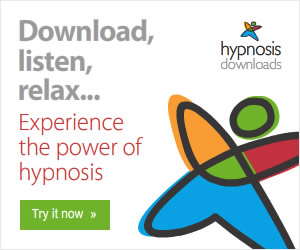An allergy is an overreaction on
the part of the immune system to things that were not necessarily dangerous in
and of themselves, but that at one time your body thought they were.
Allergies such as hayfever are traditionally treated with a
strong antihistamine. The medicine is relatively effective, but it dries out
the nasal passages and throat and can be very uncomfortable. Is it possible to use our own powerful mind
to treat the allergy? Apparently, yes.
NLP is about human
excellence, about how to change limiting beliefs and attitudes to restore
health and maintain happiness.
NLP aims to combine the three most influential
factors known to influence human experience:
- The neurological system, responsible for body function regulation;
- The language system that controls how we interact and communicate
with others;
- Our programming, which defines the models of the worlds we create
in our lives.
NLP
is known for modifying many behaviours through anchoring of a positive state in
the predominant V-A-K senses ie Visual-Auditory-Kinesthetic. NLP can help in situations like public
speaking; a salesperson can identify a
purchaser’s buying strategy to understand what would be the best approach in
selling and a teacher can use NLP to help
students learn in the way which is best for them individually.
The
NLP Fast Phobia Cure can remove a phobia within 15 minutes. I know because I have used it successfully
with many clients and used a combination of self-hypnosis and the NLP Fast
Phobia Cure to overcome my life-long spider phobia.
Yes,
there are many widely known applications of NLP but I want to look at a little
known area: NLP for Allergies. This method recodes how the person’s T-cells flag an
allergen in the their immune system. Allergens that were marked out as harmful
by the person’s immune system are, after the NLP allergy process, treated as
they should be ie they aren’t flagged any more.
1. Associate into the
memory of an allergic reaction.
2. Establish an anchor
[A1] for a dissociated state.
3. Establish a desired
state anchor [A2] for how the explorer wants to respond.
4. Establish an anchor
for several counterexample reference experiences [A3].
5. Check for any
secondary gains or ecology issues regarding the allergic response.
6. Fire off the
dissociated state anchor [A1] and have the explorer begin to imagine being near
the allergen.
7. Fire off the
anchors for the desired state [A2] and counterexample [A3] simultaneously.
8. Test.
“The basic NLP Allergy Technique has now been applied thousands of times in clinical and training settings and has been effective in changing a vast majority of allergy symptoms. The types of allergies have included those to airborne material, such as smoke, pollen, perfume, etc., to various foods, and even in cases involving asthma.
In a study done in Salt Lake City (Hallbom & Smith, 1987), 32 individuals were guided through the allergy pattern for a multitude of allergies, including pollen, smoke and foods. They even treated a person who was sensitive to poison oak, which is a kind of an allergy. Out of the 30 people, all but three showed immediate reduction of their symptoms. Most of the people in the study, in fact, showed a complete suppression of the allergic reaction immediately after learning the process. A six month follow up revealed that only three of the individuals who had responded positively had any recurrence of their allergies.
In the Summer of 1994, a controlled clinical test of the Allergy Process was conducted with approximately 120 allergy sufferers. The study was conducted under the supervision of Dr. David Paul at a hospital in Vail, Colorado. The study showed that the Allergy Process produced significant reduction in the symptoms of many types of allergies, in particular food allergies. Details of this study are available from the Institute for Advanced Studies of Health (IASH).”
How Does NLP Help Allergies?
The premise of NLP suggests that allergic reactions
(an immune response from the body) are directly influenced by the mind and
other psychological factors. NLP works by questioning these factors and teaches
the individual how to have more control over his or her body’s response to
allergens.
Medical
people agree that the chronic, allergy-related diseases (asthma, allergic
rhinitis, eczema) can be triggered by stress, anxiety or strong emotions.
NLP practically retrains the immune system to react
less, if at all, to allergens. It aims to treat the allergy by re-educating the
immune system to react passively instead of actively in response to allergens
(and other foreign substances) via techniques of psychological reframing.
Allergies can often develop in times of great
change such as puberty, marriage, poor health and even parenthood. These
changes can all affect us both externally and internally at a cellular level.
With these changes in mind, NLP aims to help the individual identify how and
when the allergy developed, and re-educates the body on how it may have acted
differently. In training the imagination, NLP teaches the body what it needed
to know to deal with the allergen at that crucial time of development, giving
it a new point of reference for future encounters with allergens.
The NLP allergy process was originally
developed by Robert Dilts, Tim Hallbom, and Suzi Smith. Here is the process taught
by Tim Hallborn:
Here is the experience of people who have used NLP
for allergies:
“I think the best claims are to actually try the techniques. I have seen NLP used to cure all sorts of allergies – including mine. I had horrible food allergies that completely constrained my life for 10 years. At a certain point I was willing to try anything to get over them. I did try NLP and it worked.” - KatPeter N:
"Amazing. After years of hayfever misery, one session of NLP has freed me."
Cliff
Westin:
“The above (Tim Hallborn video)should cover your question about the process. As for the extraordinary evidence; for me, I had seasonal allergies relieved while learning the process. I have since used this process to alleviate pet allergies with a number of people and I have been able to alleviate lactose intolerance in one person as well.
I agree that a large study should be conducted on this to give the general populous that don’t understand what the processes is about, the ammunition needed to make a reasonable decision. On the other side of this statement, without such a study, it’s also hard to condemn the process.
For those that feel this is dangerous. It is always recommended to validate the outcome of this process with a medical professional. If you have sea food allergy and you try this process, go back to the Dr. and have them run the tests again. For the love of all that is holy, don’t take anyone’s word for anything, certainly if you have a condition that could kill you.”
Hypnosis
can sometimes be applied:
Jonathan
Arthur:
“I had a hypnosis session for the matter of dog allergies. I have been thinking whether or not this has worked. For the last two weeks I have been fostering dogs with no allergic reaction, I have concluded that my allergies to dogs have been cured! If you are skeptical of hypnosis then you should try it. If you don’t think this exists, try it for yourself. It’s not the Hypnotist doing anything, it’s how you go about in your own consciousness. It’s extremely hard to explain but if you have allergies, depression, addiction etc…… Just try a session and see if it works for you. This is not voodoo or anything like it. Try it for yourself.”
Remember
that an allergy can be the body’s way of
communicating the need to take better care, slow down and return to a healthier
way of living. A disease shows that the
body is at dis-ease with itself.
Antonia
Harrison is The Lifestyle Liberator freeing people from bad habits, addictions
and fears using the powerful tools of Clinical Hypnosis and NLP. She is located in the UK and helps clients
worldwide via Skype. Visit
http://www.AntoniaHarrison.com
Connect with me on Facebook:
Follow me on Twitter and I'll follow you back:












No comments:
Post a Comment